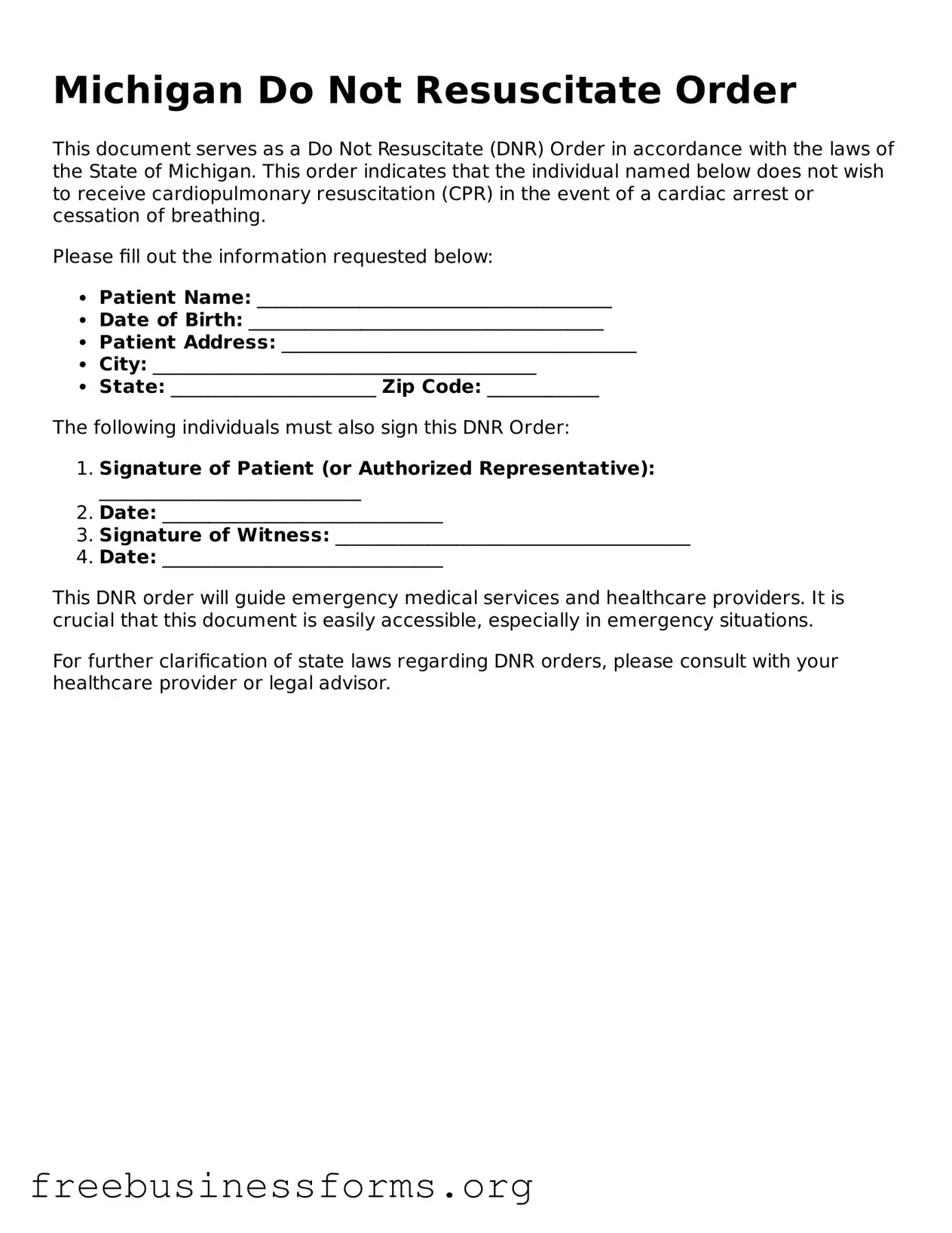Blank Do Not Resuscitate Order Template for Michigan
A Michigan Do Not Resuscitate Order (DNR) form is a legal document that allows individuals to express their wishes regarding resuscitation efforts in the event of a medical emergency. This form ensures that healthcare providers respect the patient's desire to forgo life-saving measures, providing peace of mind to both patients and their families. Understanding the DNR form is essential for making informed decisions about end-of-life care.
Open Form Here

Blank Do Not Resuscitate Order Template for Michigan
Open Form Here

Open Form Here
or
↓ PDF File
Quickly complete this form online
Complete your Do Not Resuscitate Order online quickly — edit, save, download.